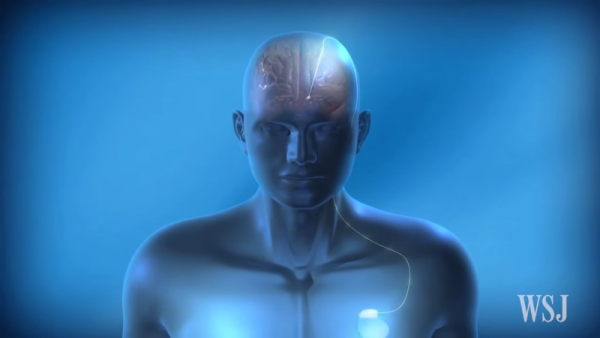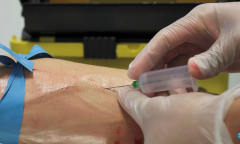By KM Diaz, | March 23, 2017

The electrodes were surgically implanted in the head of the participants to stimulate the area of the brain where motivation, satisfaction, and state of life are essential. (YouTube)
Researchers have discovered a new way to help patients who are experiencing a severe type of depression. Deep brain stimulation has been found to provide relief to patients who did not respond to treatment for years.
The small but long-running research involves eight participants who suffered from treatment-resistant depression. Seven out of eight patients, who received deep brain stimulation, have experienced some relief in their depressive symptoms compared to the past four years in the research. According to Medical Express, this is the first long-term research that involves deep brain stimulation.
Like Us on Facebook
The electrodes were surgically implanted in the head of the participants to stimulate the area of the brain where motivation, satisfaction, and state of life are essential. A pacemaker-like device located under the skin in the upper chest controlled the intensity of the stimulation.
The researchers asked ten diagnostic questions and evaluated them in a diagnostic scale known as Montgomery-Asberg Rating Scale (MARDS). The score of each participant fell by over half in the first month, but their scores remained consistent throughout the study.
However, the participants suddenly suffered eye movement disorder, and five of them experienced double vision during the deep stimulation. The researchers minimized the stimulation to reduce the side effects.
On the other hand, three patients who did not take antidepressants have an increase in their depressive symptoms. Work and family issues might by additional factors that triggered the symptoms to reoccur.
According to researchers, a large group of people needs to be tested to confirm the effects and the safety of the procedure. Deep brain stimulation is currently used to treat Tourette syndrome, obsessive-compulsive disorder, and Parkinson's disease.
-
Use of Coronavirus Pandemic Drones Raises Privacy Concerns: Drones Spread Fear, Local Officials Say

-
Coronavirus Hampers The Delivery Of Lockheed Martin F-35 Stealth Fighters For 2020

-
Instagram Speeds Up Plans to Add Account Memorialization Feature Due to COVID-19 Deaths

-
NASA: Perseverance Plans to Bring 'Mars Rock' to Earth in 2031

-
600 Dead And 3,000 In The Hospital as Iranians Believed Drinking High-Concentrations of Alcohol Can Cure The Coronavirus

-
600 Dead And 3,000 In The Hospital as Iranians Believed Drinking High-Concentrations of Alcohol Can Cure The Coronavirus

-
COVID-19: Doctors, Nurses Use Virtual Reality to Learn New Skills in Treating Coronavirus Patients












